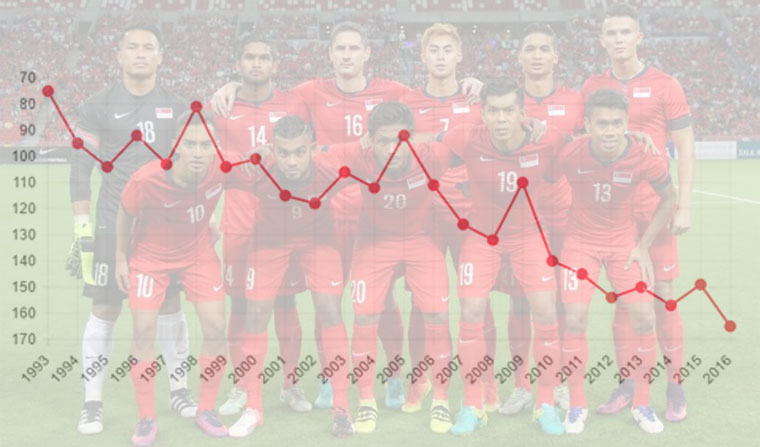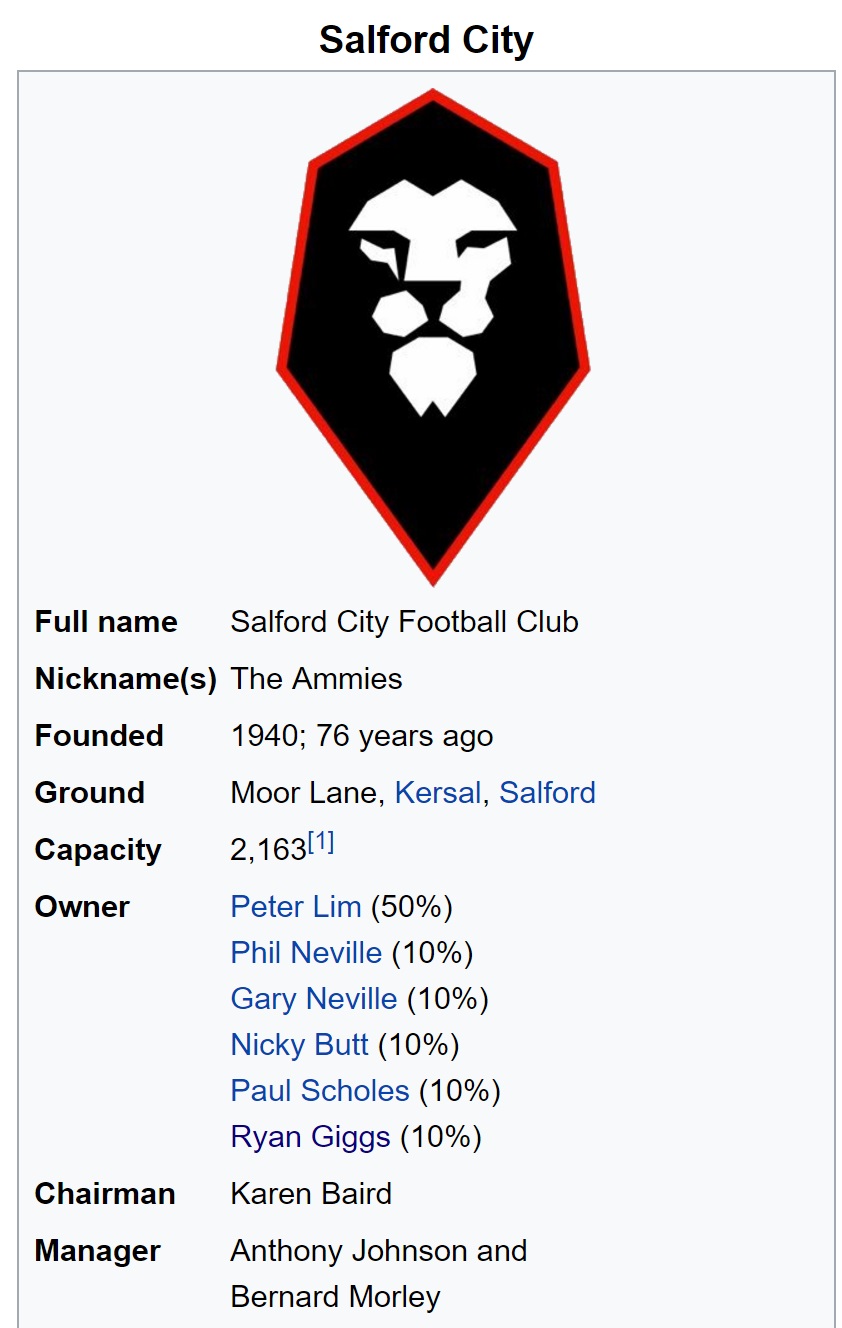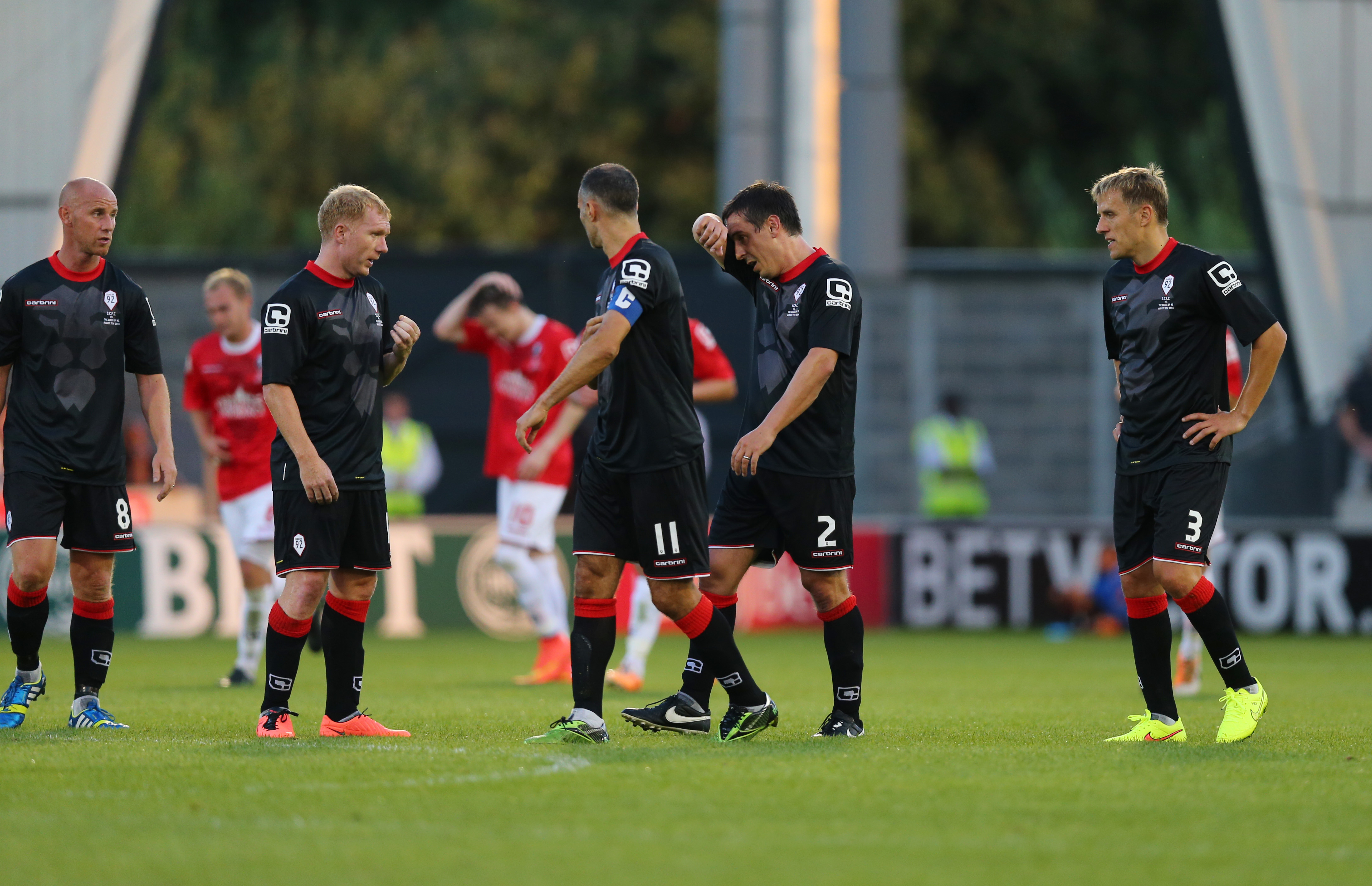When it rains, it pours.
Earlier this week (Dec.22), FIFA released its end of year world football rankings that summed up the state of Singapore national football team -- Singapore football has fallen to its second-worst-ever ranking (165th) in history.

And its worst ever ranking? 171 this Oct.
On Christmas, The Straits Times reported that the Football Association of Singapore's (FAS) $25 million, six-year deal with international sports media rights company MP & Silva, may be in jeopardy.
ST noted that MP & Silva is reassessing the deal -- after less than two years -- because of "a lacklustre stretch which has delivered none of the high-profile friendlies promised".
Lacklustre.
It's an apt word that describes all that's wrong in Singapore football at the moment, from its losing performances on the field to its lack of urgency in managing its leadership transition (FAS is led by an interim President for eight months until May 2016).
One will be okay if the FAS is run by a bunch of semi-professionals, except that it's not.
 Source: FAS Annual Report April 2015 - March 2016
Source: FAS Annual Report April 2015 - March 2016
To make sense for you, the top three executives in the FAS are paid $33,333 -$41,666; $25,000 - $33,333; $16,666 - $25,000 every month.
To put things in context, our high-paying Members of Parliament are paid $192,500 annually, which works out to about $16,041 per month.
Maybe the FAS folks are not paid enough, like the football millionaires of Manchester United.
Some millionaires do things better
In a recently published Class of 92: Out of Their League book, we learnt that Man Utd legends Gary and Phil Neville, Paul Scholes, Ryan Giggs and Nicky Butt have become owners of semi-professional club Salford City FC with our very own billionaire Peter Lim.
 Source: Wikipedia.
Source: Wikipedia.
The in-depth observations of Salford's first two years under its new ownership and the first-hand accounts from the Nevilles, Scholes, Giggs and Butt have lessons that apply to the world of football including Singapore.
1. First, it's all about hard work and applying the best practices to local context
Gary Neville: "When we took over the club, Karen (Chairman) and I spent probably seven or eight days touring clubs who'd made similar journeys. So we'd been to see AFC Wimbledon, Fleetwood, Morecombe, Fylde and FC United. We asked them about everything: facilities, team improvement, coaches.
And every single one of them said that they felt that you basically appointed the best manager you could at whatever level you were in...And they all felt that managers tend to have two good years and then a plateau...They would often go through a couple of leagues with promotions and then they'd start to struggle."
Did Neville tour the likes of Chelsea, Arsenal, and Manchester United? Nope.
Did Neville appoint coaches like José Mourinho or Pep Guardiola? Nope.
Among the football coaches Singapore have appointed over the years, they have opted for an ex Denmark u-21 coach with no prior experience coaching in Asia (Jan B. Poulsen) and a former Belarus coach who have not worked for two years (Bernd Stange).
How about finding the best "manager you could at whatever level you were in"?
Maybe we can approach the only foreign coach who got a team into the semi-finals of the ASEAN Football Championship.
Oh wait. He used to be our coach.
2. Pricing football well and staying true to our roots.
Gary Neville: "Once you start getting up to £10 (S$17.78) and £12 (S$35.54), which some clubs are doing, you're into £50 ($88.86) for a family day out. How can we justify people that with the facilities we have?
Actually there still could be a quarter of the ground or a stand in the ground that could remain the heart of the community [with its cheaper range of tickets]...It (football) needs to stay true to its local roots and community. It should be globalised."
If you are curious about how much tickets cost in Singapore, we can use the example of the recent Causeway Challenge (Singapore vs Malaysia) in October.
A night out to watch football will cost you from $52 - $104, if you have a family of two adults, two kids, and one senior citizen.
It is ironic that a millionaire like Neville is more sensitive toward pricing and family-themed entertainment than our football leaders here.
3. Lastly, it's not all about the money. Really.
Ryan Giggs: "Instead of just throwing money at it we've tried to bring little bits of professionalism around the edges. Things like making sure there are good physios always around. Even the kit can make a difference; you feel a million dollars in a good kit. We also have the partnership with the University of Salford media department for filming games so that they can be analysed.
So we're giving the club a bit of that professional vibe. It's not so much changing everything straightaway; it's about evolving and changing the mentality a little bit so that it becomes: 'Every game we need to win'.
If we can get just over 5 per cent of the population of Salford to come to watch us in the next ten years, that would be around 15,000. That's our aim. Can we get five per cent of Salford to support us? ... Ultimately, we believe that if we provide good facilities and exciting football, we keep ticket prices low -- its still £7 (S$12.45) and £1 (S$1.78) for a junior -- they will come and hopefully we'll get good crowds."
Apply this notion of money to the context of Singapore, where FAS general secretary Winston Lee lamented in 2015 that Singapore's S$9.7 million annual budget is not enough if Singapore were to compete at the Asian level.
He highlighted that Indonesia gets $112 million annually; Vietnam $60 million; Thailand $52 million; and Malaysia $35 million, while Japan gets $264 million a year, South Korea gets $95 million and China $180 million.
What he did not say, as TODAY pointed out is that the Philippines Football Federation improved from 191st position in 2005 to its current 120th spot despite having a budget about one third of Singapore’s.
FAS also did not point out that it spent $4.4 million on the LionsXII who were booted out of the Malaysian Football league after enjoying some success in its three years there.
If only we have a Singaporean who knows the Class of 92.
Actually, we do.
So contact billionaire Peter Lim please, but not to ask him for a donation of $50 million.
Because Lim's donation will not help FAS if FAS does not know how to manage our current resources creatively and more efficiently.
Ask Lim whether we can learn football management and leadership from him instead.
Top photo by AMA/Corbis via Getty Images.
If you like what you read, follow us on Facebook and Twitter to get the latest updates.
If you like what you read, follow us on Facebook, Instagram, Twitter and Telegram to get the latest updates.
